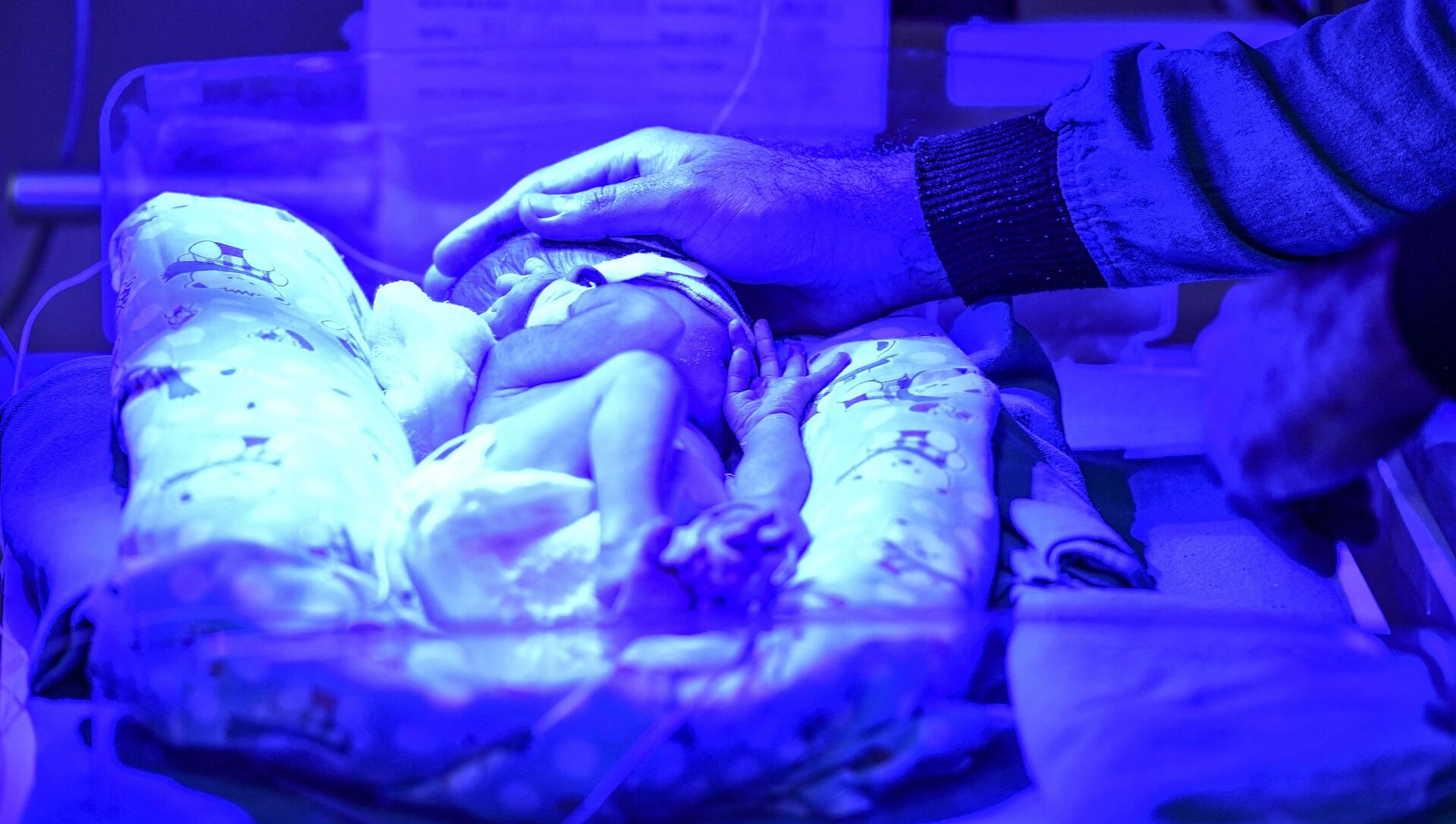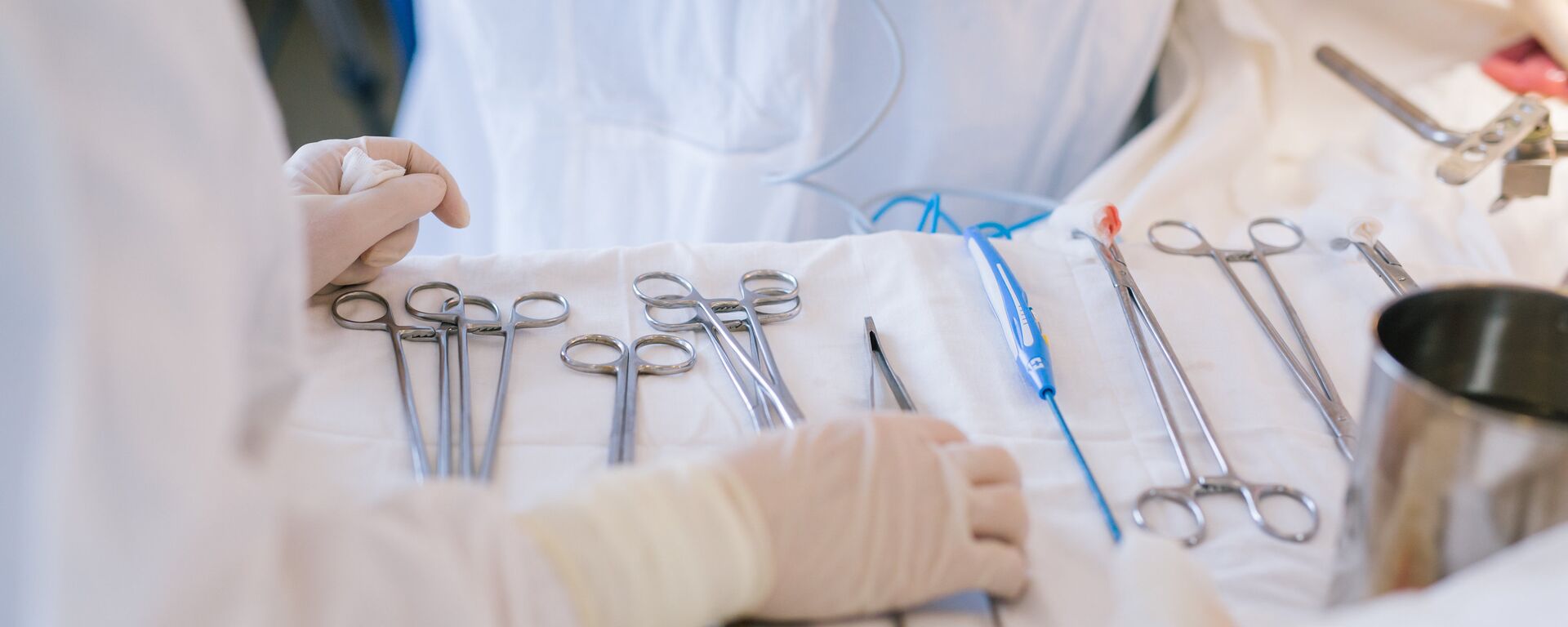https://sputnikglobe.com/20210810/delhi-doctors-remove-extremely-rare-tumour-from-newborns-heart-1083569030.html
Delhi Doctors Remove Extremely Rare Tumour From Newborn's Heart
Delhi Doctors Remove Extremely Rare Tumour From Newborn's Heart
Sputnik International
In babies intrapericardial teratoma has a high mortality rate, but the child is recovering well after surgery. 10.08.2021, Sputnik International
2021-08-10T10:32+0000
2021-08-10T10:32+0000
2022-07-19T10:38+0000
newsfeed
world
tumour
infant mortality
https://cdn1.img.sputnikglobe.com/img/07e5/08/0a/1083570626_0:125:3072:1863_1920x0_80_0_0_8804e0db88b858044e11efd244bf29fa.jpg
Doctors at Delhi's Indraprastha Apollo Hospital have performed life-saving surgery on a two-day-old baby to remove a tumour from its heart, which was detected while it was still in the womb. The growth was an incredibly rare form of tumour known as intrapericardial teratoma. He added that in his 20 years as a pediatric cardiologist, he has never seen such a large tumour attached to the heart of a foetus.""Teratomas are basically undifferentiated masses. This structure that was found in the baby had everything like pieces of hair, some calcium deposits which was suggestive of teeth. It was undifferentiated to the extent that we do not know if it could have turned malignant later," Dr Marwah explained.He also said that because of the tumour the baby's heart is smaller than normal – despite this it is working well. "The child is doing fine right now. The heart is underdeveloped but it's coping well. We are closely monitoring the baby and his heart. We will follow with tumour markers within every two-three weeks to check if the tumour reoccurs," he added.
https://sputnikglobe.com/20200624/indian-doctors-remove-rare-tumor-1079703353.html
https://sputnikglobe.com/20210607/18-year-old-who-suffered-rare-heart-failure-post-covid-successfully-treated-in-india-1083093071.html
Sputnik International
feedback@sputniknews.com
+74956456601
MIA „Rossiya Segodnya“
2021
Sushmita Panda
https://cdn1.img.sputnikglobe.com/img/07e5/05/12/1082926186_0:0:2048:2048_100x100_80_0_0_4474d0d7e27a36878eb8727832be74b4.jpg
Sushmita Panda
https://cdn1.img.sputnikglobe.com/img/07e5/05/12/1082926186_0:0:2048:2048_100x100_80_0_0_4474d0d7e27a36878eb8727832be74b4.jpg
News
en_EN
Sputnik International
feedback@sputniknews.com
+74956456601
MIA „Rossiya Segodnya“
Sputnik International
feedback@sputniknews.com
+74956456601
MIA „Rossiya Segodnya“
Sushmita Panda
https://cdn1.img.sputnikglobe.com/img/07e5/05/12/1082926186_0:0:2048:2048_100x100_80_0_0_4474d0d7e27a36878eb8727832be74b4.jpg
newsfeed, tumour, infant mortality
newsfeed, tumour, infant mortality
Delhi Doctors Remove Extremely Rare Tumour From Newborn's Heart
10:32 GMT 10.08.2021 (Updated: 10:38 GMT 19.07.2022) In babies intrapericardial teratoma has a high mortality rate, but the child is recovering well after surgery.
Doctors at Delhi's Indraprastha Apollo Hospital have performed life-saving surgery on a two-day-old
baby to remove a tumour from its heart, which was detected while it was still in the womb. The growth was an incredibly rare form of tumour known as intrapericardial teratoma.
"The tumour was extremely big and it was growing excessively and stressing on the heart. The tumour was occupying almost the right chest. When we delivered the baby, he was unable to breathe properly. He was immediately put on the ventilator and the next day he was sent for surgery," Dr Marwah said.
He added that in his 20 years as a pediatric cardiologist, he has never seen such a large tumour attached to the heart of a foetus."
"Teratomas are basically undifferentiated masses. This structure that was found in the baby had everything like pieces of hair, some calcium deposits which was suggestive of teeth. It was undifferentiated to the extent that we do not know if it could have turned malignant later," Dr Marwah explained.
He also said that because of the tumour the baby's heart is smaller than normal – despite this it is working well.
"The child is doing fine right now. The heart is
underdeveloped but it's coping well. We are closely monitoring the baby and his heart. We will follow with tumour markers within every two-three weeks to check if the tumour reoccurs," he added.





